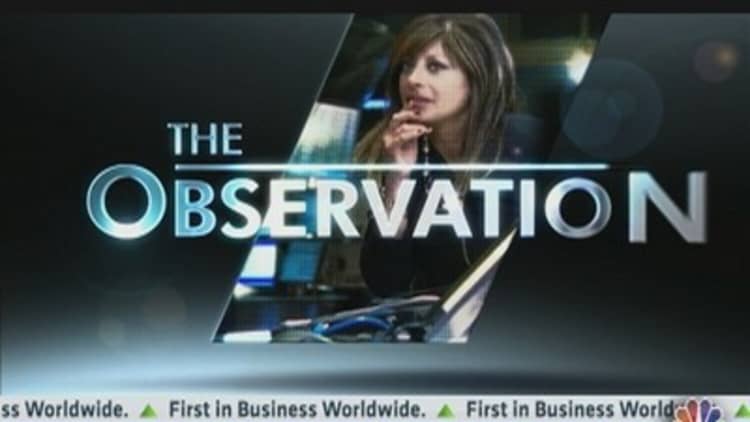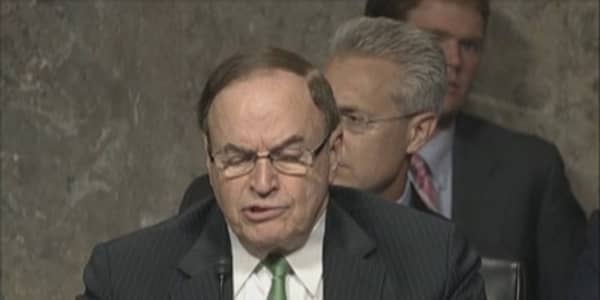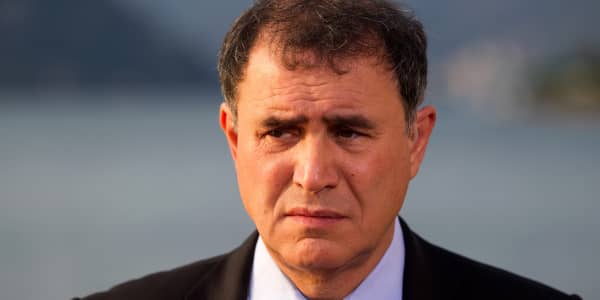The Mayans may not be right about the world ending by the end of 2012, but the next month and a half is looking a lot more panic-stricken than celebratory.
The ongoing fight over the "fiscal cliff" may overshadow everything else as we get closer to the new year. Sadly, compromise seems hard to come by, even though the consequences of going over the cliff — hundreds of billions of dollars of spending programs that are set to expire, along with the largest tax increase since World War II for virtually all income levels — was specifically designed to force compromise.
(Read More: What Is the 'Fiscal Cliff'?)
It seems Washington underestimated its own dysfunction.
President Barack Obama has been very clear in his mission and at last check seemed to be digging in on his goal to raise tax rates on only the highest earners. (Read More: Obama: Ending Tax Cuts for Rich Resolves Half of 'Cliff' )

Those earners, of course, are designated by the White House as individuals making an annual salary of $200,000, or couples bringing in $250,000. At his Wednesday news conference, the president made clear he wants to raise their rates and close loopholes. This conflicts with recommendations from his own bi-partisan debt commission, led by former Republican Sen. Alan Simpson and respected Democrat Erskine Bowles, which advocates a simpler tax code with fewer deductions but lower rates. (Read More: Simpson, Bowles to Bring 'Cliff' Debate to 'Impact')
So the market has been nervous over the unknowns of where tax rates will be in 2013, and has sold off since Election Day in anticipation of much higher capital gains and dividend taxes. Much of the discussion over the last few weeks has been about broadening the base of taxpayers by eliminating loopholes and exemptions.
Sources tell me, if done right, this would far exceed the revenues a tax "rate" hike would generate. But even if you do raise rates on top earners and limit deductions, that barely moves the needle on our national debt and deficit. Entitlement spending is the main issue, yet so far there has been no discussion of spending cuts.
(Read More: Farr: Putting Numbers to the 'Fiscal Cliff')
The president has been meeting with labor leaders and CEOs to discuss how to avert the fiscal cliff. Most economists say failure to do so is the surest way to drive the U.S. back into a recession in 2013. Yet we do not appear close to a compromise solution. Republican Speaker John Boehner has said he is open to more tax revenue, but not via higher tax rates. He wants to close loopholes. (Read More: Markets Still Waiting for Breakthrough on 'Fiscal Cliff')
The president continues to reiterate what he had been saying throughout the campaign — that he will veto any deal that does not raise rates on upper-income taxpayers. This would take the current federal tax rate of 35 percent to close to 39.6 percent. Now there are reports that President Obama is looking for additional tax revenues of $1.6 trillion over the next decade, or double what he had proposed last year during the painful talks over extending the debt ceiling with Republicans.
That means the president is looking to eliminate many deductions, while also raising tax rates on the highest earners. Meanwhile, his own Simpson-Bowles plan calls for lowering both person and corporate tax rates. The president has campaigned on raising tax rates on the highest earners, which includes small business owners, and he is sticking to it. He has dug in his heels. This is disappointing because, as the stock market is telling us, it makes a deal less likely. What's truly alarming is we are stuck on this petty "tax the rich more" fight, even though we know that revenue would not be enough to make a dent in our massive debt and deficit.
The Republicans haven't been a lot better, but at least they say they are open to higher revenues. We all know it will take real compromise to move the needle on $16 trillion of debt and yearly deficits of more than $1 trillion. This has been a central point of my coverage on CNBC's "Closing Bell" for several months now.
A special edition of Closing Bell, "Rise Above: Investor Summit" on Thursday from the Schwab IMPACT conference in Chicago.
After seeing the press conference Wednesday, and how adamant the president has been about raising rates with no discussion whatsoever about spending cuts, I am fast giving up hope for a compromise. I now believe it is very possible we will go over the fiscal cliff and that will likely lead to a recession in 2013. (Read More: )
The question is how tough it will be to reverse the damage if Washington takes us over the brink? How long and drawn out will a recession be while our lawmakers fail us? The best we can do as investors is prepare for much higher capital gains and dividend taxes that are surely to come. How much worse it is beyond that will be dictated by how much self-inflicted damage Washington is willing to impose on America's economy.
Let's just say I'm not optimistic.
—By CNBC's Maria Bartiromo; Follow her on Twitter @MariaBartiromo
Tune In: Thursday, Nov. 15, 4 p.m. The two men leading the charge to fix America's debt crisis — Alan Simpson and Erskine Bowles — sit down for an extended conversation with Maria Bartiromo.




